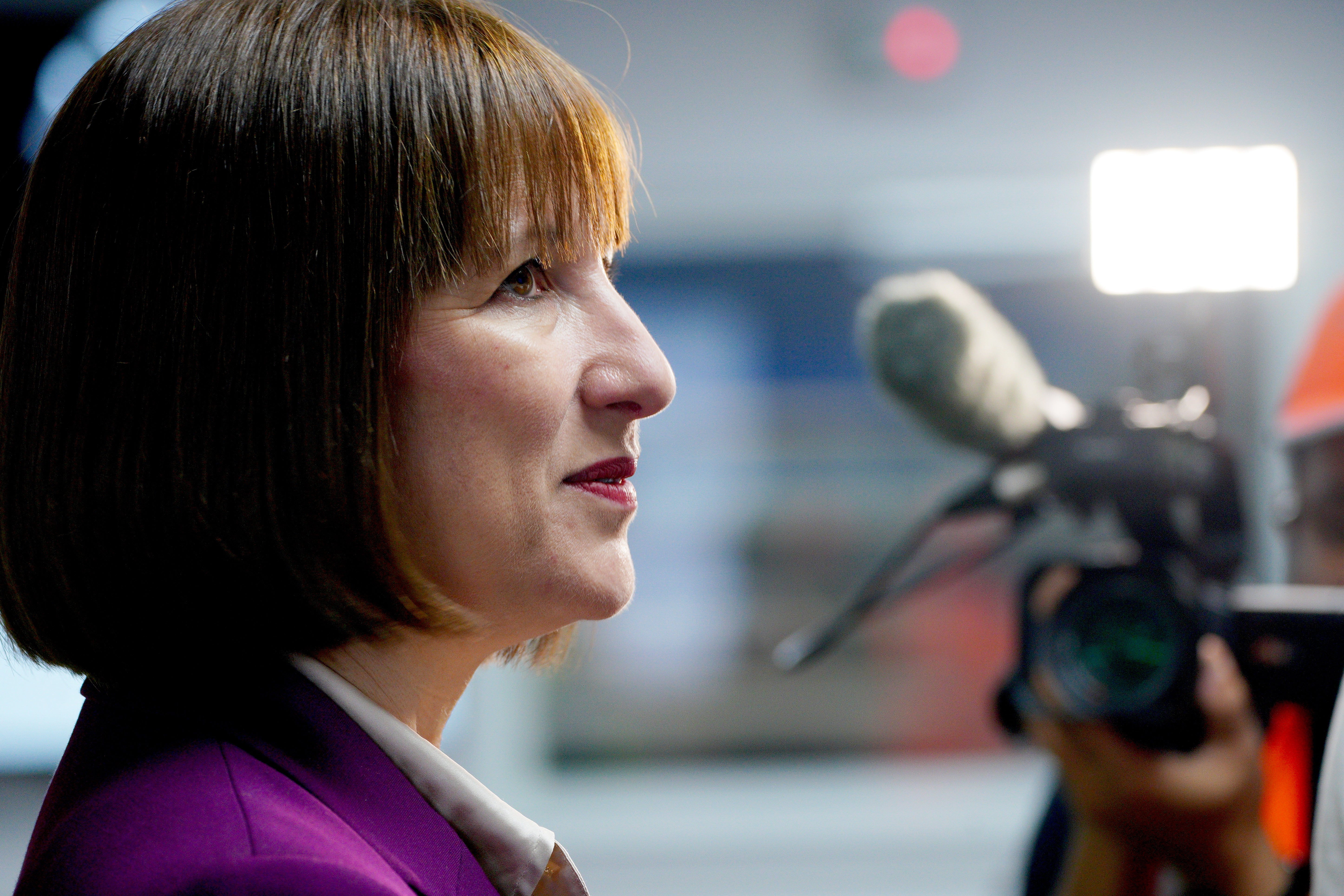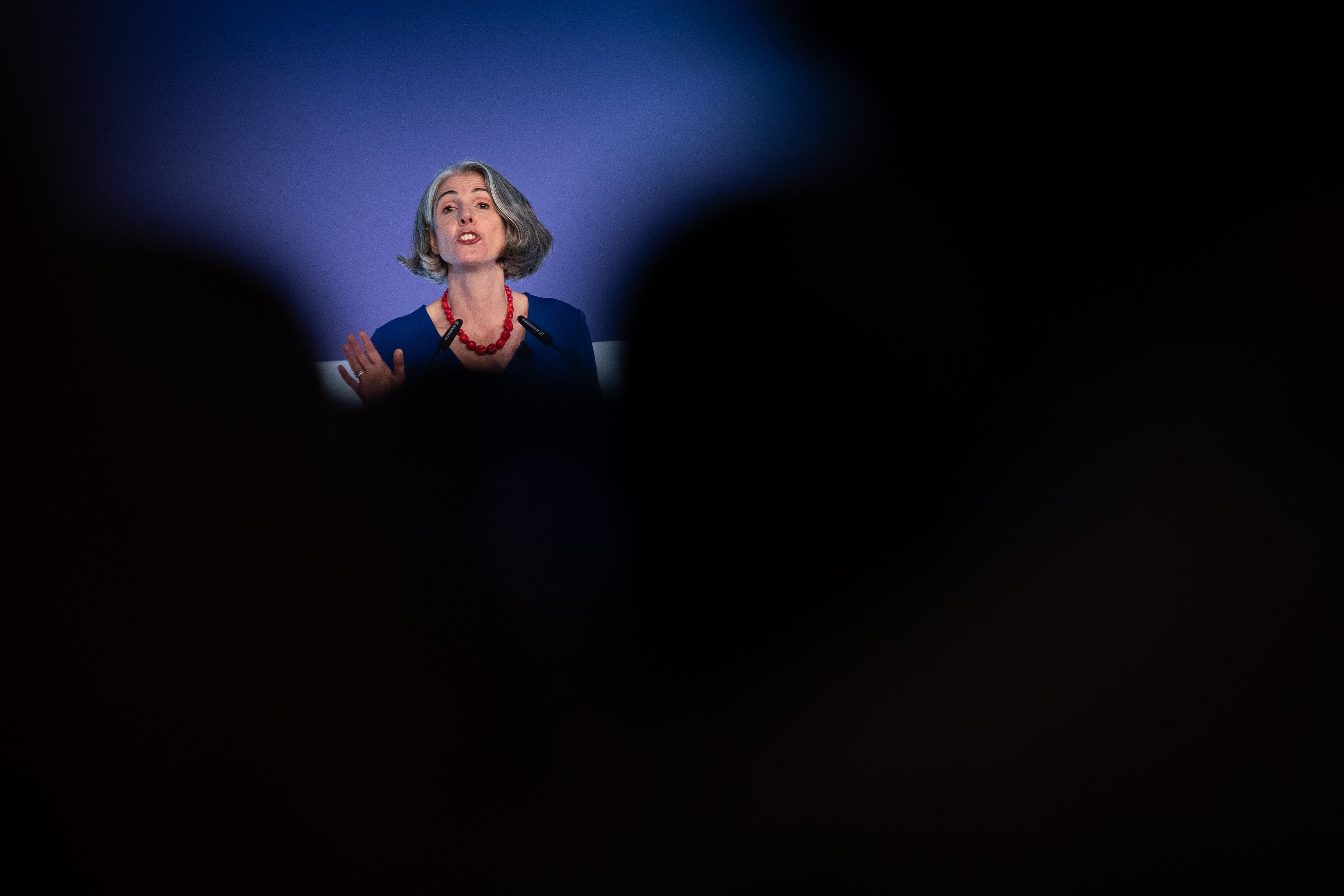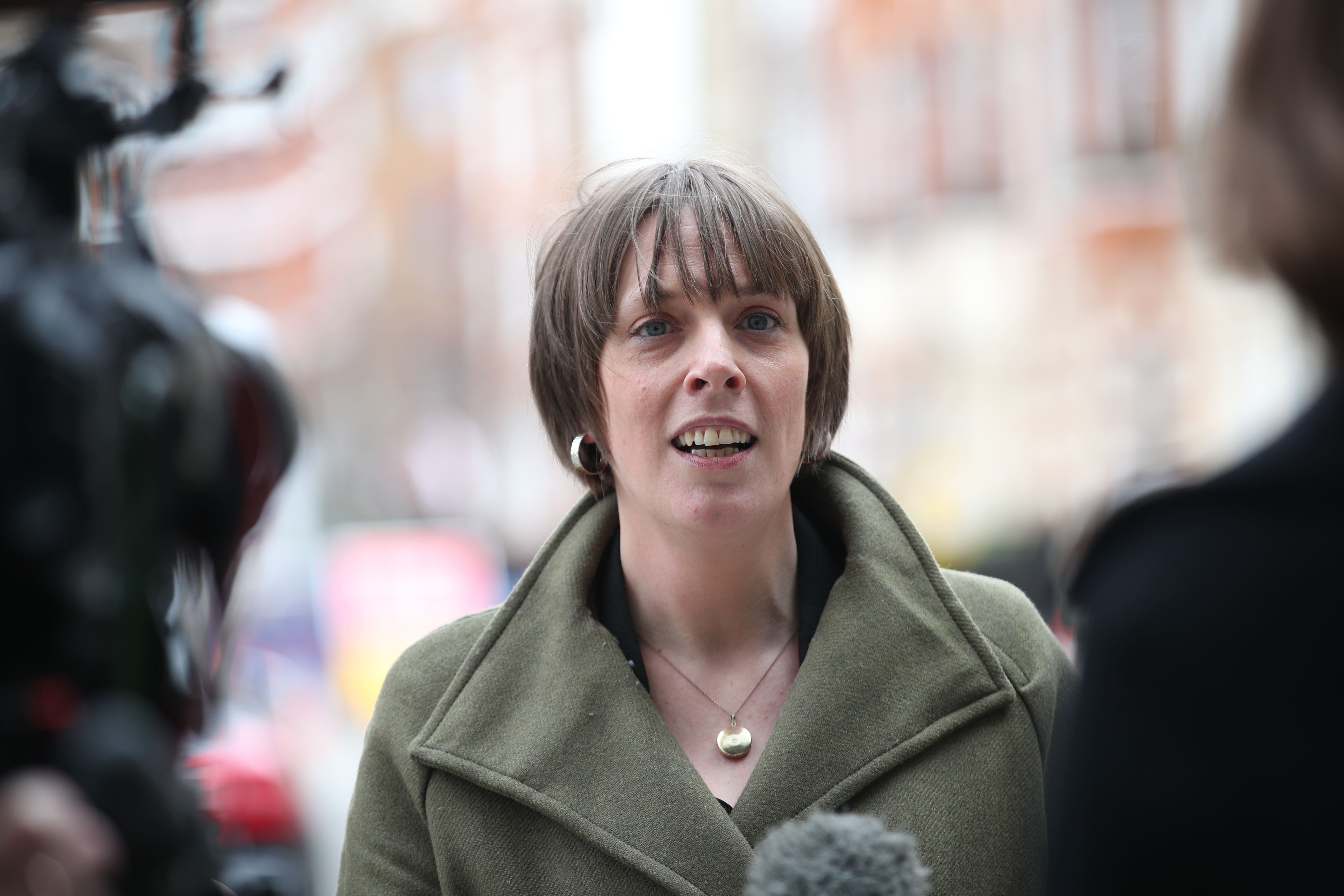Rachel Reeves CBI speech live: Chancellor expected to defend plans after criticism from business leaders
CBI chief Rain Newton-Smith said that business had been caught ‘off-guard’ by national insurance hikes

Your support helps us to tell the story
From reproductive rights to climate change to Big Tech, The Independent is on the ground when the story is developing. Whether it's investigating the financials of Elon Musk's pro-Trump PAC or producing our latest documentary, 'The A Word', which shines a light on the American women fighting for reproductive rights, we know how important it is to parse out the facts from the messaging.
At such a critical moment in US history, we need reporters on the ground. Your donation allows us to keep sending journalists to speak to both sides of the story.
The Independent is trusted by Americans across the entire political spectrum. And unlike many other quality news outlets, we choose not to lock Americans out of our reporting and analysis with paywalls. We believe quality journalism should be available to everyone, paid for by those who can afford it.
Your support makes all the difference.Rachel Reeves is expected to tell business leaders that there was “no alternative” to tax rises as she faces criticism for decisions made in the autumn budget.
The chancellor is set to speak at the Confederation of British Industry’s (CBI) annual conference, shortly after Salman Amin, the head of McVitie’s said Britain had become a less attractive place to do business.
In a stinging speech, the CBI’s chief executive also warned that “tax rises like this must never again be simply done to business”.
Rain Newton-Smith said the said the measures announced last month have made it harder for businesses to “take a chance” on hiring new people and that employers were caught “off-guard” by the hike in national insurance contributions.
Taking to the stage this afternoon, Tory leader Kemi Badenoch accepted that her party had “lost the confidence of business” but said that Labour were repeating the same mistakes.
Meanwhile, the government has launched a crackdown on welfare benefits as the prime minister promises a ‘zero-tolerance’ approach to cheats and debate continues on the voluntary assisted dying bill due to be debated in parliament later this week.’
Labour tempers flare over assisted dying as MP accuses peer of ‘hugely offensive’ remarks
A Labour peer has been accused of making “hugely offensive” remarks by an MP from his own party after he suggested the justice secretary’s concerns about the assisted dying bill were “motivated by religious belief”.
Rachael Maskell, the MP for York Central and a devout Christian, said Lord Falconer’s claim that Shabana Mahmood was trying to “impose” her Muslim beliefs on those in favour of assisted dying was “hugely offensive and discriminatory” and urged him to apologise.
The row comes as temperatures are flaring on the Labour benches about the assisted dying bill, which MPs will vote on this Friday.
Read the full article here:

Labour tempers flare over assisted dying as MP accuses peer of ‘offensive’ remarks
Lord Falconer was accused of ‘offensive remarks’ over his claim that Shabana Mahmood’s opposition to the assisted dying bill is to do with her Islamic faith
Analysis: What happened eight years ago?
Brexit is still on the minds of business leaders, although its name is seldom spoken, since it tends to reheat old arguments and the government has said rejoining the EU is not on the agenda.
Still, CBI boss Rain Newton-Smith makes a reference to the long shadow it has cast over the economy and business in her speech: “After eight years of downcast ambitions of weak growth, I know we are all dead set on getting our economy moving again.
“So my message today to government and to all parties is, work with us to get there. Let’s build that bridge together.”

Analysis: CBI boss brings up sore topic for business amid warning for government
A big part of CBI boss Rain Newton-Smith’s speech was about industrial strategy, something of a sore topic for businesses in the last decade.
A business strategy is just a plan on which areas of the economy you will help out since they show promise or you need them. Under most of the last government there wasn’t one, since it ideologically didn’t like meddling by aiding one sector of business over another.
The trouble is, as Ms Newton-Smith suggests, other countries did like doing that meddling, putting Britian’s competitors in the driving seat. She doesn’t mention which areas of the economy, but it tends to be ones that require a large amount of capital investment like green energy or ones that are fast-paced and need laws which can catch up, like developing medicine.
She said: “If you look at the most successful economies of the last 50 years, there’s one common denominator, a strong, clear and modern industrial strategy. We’ve got a commitment from government to deliver it.”
“But what is not yet clear is how it will help businesses in the everyday economy, the large employers who are often the first step into the world of work, the unsung heroes in our communities, how we support their workforce to be more productive.
“Because I can tell you, if you don’t do that, your industrial strategy will not stand the test of time. So today, I’m proud to say the CBI is launching its own blueprint for competitiveness.”
She wants a broader-based strategy that also helps big employers like retailers who feel they’ve been hit hard in the budget. In a familiar refrain to win over those who think it’s anti-competitive – get your business catchphrase bingo cards out – she says “this isn’t about picking winners. It’s about picking races, races we can win.”
Businesses not ready to invest or grow in the UK, CBI chief warns
Rain Newton-Smith, chief executive of the Confederation of British Industry, told her organisation’s annual conference: “What really defines growth is the decisions made in boardrooms up and down the country.
“It’s CFOs (chief financial officers) asking, ‘can we afford to invest? Can we afford to expand? Can we afford to take a chance on new people?’
“Well after the Budget, the answer we’re hearing from so many firms is still ‘not yet’.
“The rise in national insurance, the stark lowering of the threshold, caught us all off guard.
“Along with the expansion and the rise of the national living wage – which everyone wants to accommodate – and the potential cost of the Employment Rights Bill, they put a heavy burden on business.”
Newton-Smith says firms were caught ‘off guard’ by national insurance hike
The head of one of the UK’s biggest business organisations has hit out at Rachel Reeves’ Budget, saying firms were caught “off guard” by the hike in national insurance contributions (NICs).
Rain Newton-Smith said the measures announced last month have placed a “heavy burden” on companies, with many now switching to “crisis containment”
She also criticised the changes to inheritance tax relief for farmers, saying it had left them “fearful” about the future.

CBI CEO says Budget has ‘made it harder for business to take a chance on people’
The CBI CEO has called for the government to work with the business industry to form an “elevated partnership”.
“Work with us together, let’s build that bridge together, we need to shift from consultation to co-design,” Rain Newton-Smith said.
“Tax rises like this must never just be done to business.”
She stressed that too many businesses were having to compromise on their plans for growth, and that the Budget had “just made it harder for business to take a chance on people”.
Economist says CBI CEO needs to be stronger in response to Budget
Independent business economist Andrew Sentance, who is a former CBI Director of Economic Affairs, says CBI boss Rain Newton Smith needs to be stronger in her response to the Budget, which has been unpopular among businesses.
He said on X: “We are being led to expect a critical speech on the Budget” From Ms Newton Smith. “She needs to be more hard-hitting than the CBI’s mild initial Budget response in October.”
Back then, she said: “This is a tough Budget for business. While the Corporation Tax Roadmap will help create much needed stability, the hike in National Insurance Contributions alongside other increases to the employer cost base will increase the burden on business and hit the ability to invest and ultimately make it more expensive to hire people or give pay rises.”
Keir Starmer reiterates plans for spiking to become specific offence
Sir Keir Starmer has reiterated plans for spiking to become a specific offence, as he hopes a change will give people “the confidence to come forward”.
The Prime Minister also laid out plans for venue staff to be trained in relation to spiking, with a pilot to begin within weeks before a wider rollout next year.
The Prime Minister made the comments in a meeting of police bosses, transport figures and hospitality executives in Downing Street on Monday morning.
Labour pledged in its manifesto to introduce a new offence for spiking, but there was no detail in the King’s Speech this year about a specific crime, though it promised to ensure an improved police response to cases.
Spiking is already illegal, but the commitment is to making it a specific offence. According to information published by the Metropolitan Police, spiking offences are covered by more than one law, but most come under the Offences Against the Person Act 1861.
Sir Keir told the meeting: “There are a number of measures that we are setting out this morning – we want to talk it through with you.
“The first is to make spiking a specific offence so that it counts, it’s reported.”
Ministers following own ‘moral code’ on assisted dying vote, says Jess Phillips
Senior Government figures opposed to the assisted dying Bill are following their own “moral code”, a minister has suggested, ahead of a vote on the law change this week.
Home Office minister Jess Phillips defended her colleague Shabana Mahmood, who made clear she would vote against the Bill in a strongly worded letter to constituents which emerged over the weekend.
She faced a backlash from Labour peer Lord Falconer for the public intervention, who suggested the Justice Secretary was motivated by her religious beliefs.
Members will be given a free vote on the issue, allowing them to make a decision according to their own conscience rather than in line with party policy.

The Home Office minister told Times Radio: “She (Ms Mahmood) will make the decision about how she votes on assisted dying on a matter of conscience, just exactly like I will.
“How she comes to that and what moral code she uses to come to that will be exactly the same as the moral code that I use to come to that decision as well.”
Ms Phillips added: “I think that Shabana is making a decision on what she thinks is best for her constituents, like every constituency MP.”
The minister said she would be backing the Bill, telling BBC Breakfast: “I am a person who fundamentally believes in the right for people to make a choice about their bodies.”
Bank of England deputy governor ‘worried’ that inflation will be higher
A deputy governor of the Bank of England has said she is “more worried” about the risks that inflation will be higher than expected as she called for a “gradual” reduction in interest rates.
Clare Lombardelli told a conference at King’s Business School there have been some signs of a slowdown in the reduction of wage inflation amid efforts to keep inflation sustainably at the central bank’s 2 per cent target rate.
Ms Lombardelli said: “I view the probabilities of downside and upside risks to inflation as broadly balanced.
“But at this point I am more worried about the possible consequences if the upside materialised, as this could require a more costly monetary policy response.
“The outlook for wages and services prices is unclear from here.
“This is why I support a gradual removal of monetary policy restriction and will be monitoring the flow of data over the coming months so we can calibrate our policy path as needed.”
Join our commenting forum
Join thought-provoking conversations, follow other Independent readers and see their replies
Comments